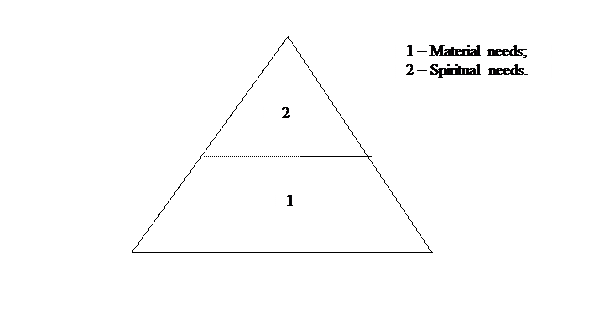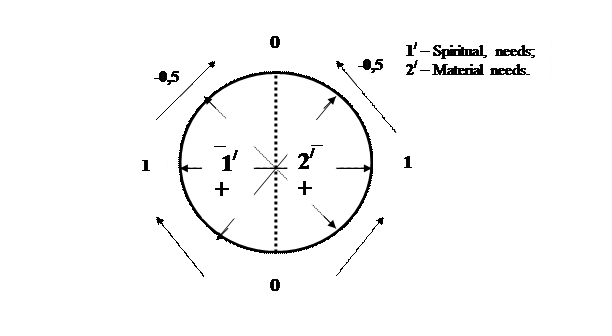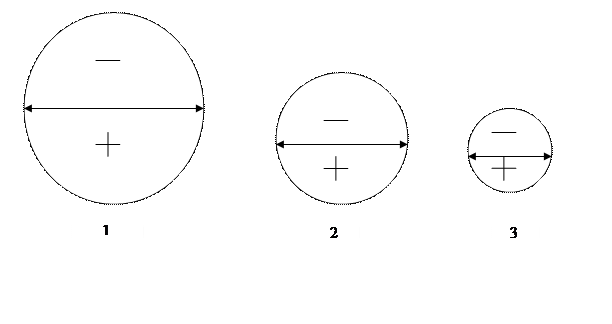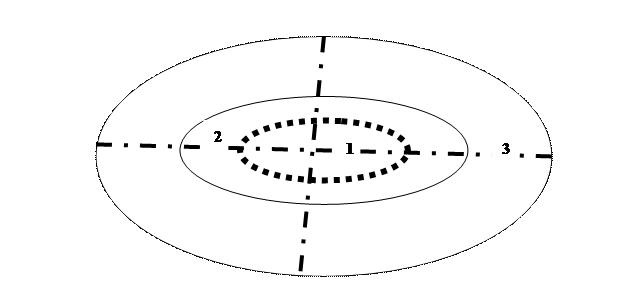Kuandyk Ainabek
The Philosophy of Life and Business
| Предыдущая |
CHAPTER 9. SECURITY OF PUBLIC BUSINESS: ESSENCE, STRUCTURE, VEHICLES, KINDS
In the research and study literature they traditionally consider economic security. However, the contents of the public business notion is more capacious and broad than the economy, which requires that the research should take into account interconnections of economic and social processes, phenomena and activity of the subjective part in the business system development. Therefore, to determine the essence of the “economic security” category, the subject matter of the research should include relations of entities of public business and economic systems: the household, the company, the state, the business systems (global, national, regional economies.
If public business security is considered without taking into account socially subjective aspects, it is transformed into economic security. Therefore public business security in the narrow sense is represented as economic security.
Economic security is originally derived from the needs of consumption and business entities. The initial level of its determination is the research of household or business entity needs, where the man is the main subject.
The American researcher-psychologist Abraham Maslow worked out the pyramid of successive satisfaction of the man’s needs, which is simplified and enlarged by us, being represented as follows.
According to A. Maslow’s proposal, material needs should be satisfied first, and spiritual ones thereafter. At the bottom of his pyramid of the man’s needs there is satisfaction of physiological needs, then there comes the need for safety and help, and then love, friendship, communication; then the need for respect and self-respect and finally the need for self-actualization [1]. The idea is not new. Even earlier it was roughly outlined by the Austrian economist E. Bem-Baverk. He wrote: “Based on these signs, all human needs can be subdivided into categories according to their importance. However, as the difference in physical and spiritual abilities, degree of education, etc. makes a strong influence on the nature of the man’s needs, for different individuals and even for one at the same individual at different times the scale of needs will acquire quite different views” [2].
Figure 4. Pyramid of simplified hierarchy of man’s needs satisfaction according to A. Maslow

To continue the above-said, let us quote the opinion of the Russian researcher B.A. Reisberg, who emphasized the following: “Let us note that in the actual life reality the law of the hierarchy of needs and sequence of their satisfaction is not manifested in its absolute form. Firstly, ideas of importance of needs are individual and changing in time. Secondly, many needs are satisfied simultaneously, and consumers are trying to satisfy some of them without waiting until some other ones are satisfied, however more important they may be” [3, p. 90].
In fact, material needs are organically, directly connected with spiritual needs. They can not be separated because there is no man without the spirit, soul.
The pyramid of successive satisfaction of the man’s needs according to A. Maslow is the initial step in understanding the meaning of this interconnection. Material and spiritual needs coexist in organic interconnection. It can be illustrated in the following model elaborated by the author.
In this model, increase of the material need satisfaction is directly connected with increase of the spiritual need satisfaction, and vice versa. Starting from the bottom from 0 to 1 the positive tendency of development is characterized, and from 1 to 0.5 and 0 upwards – the reverse process, the negative tendency. It witnesses that interconnection of satisfying material and spiritual needs have limiters from 0 to 1 in this model. It can be added that if the positive part does not reach 1, it is filled with the negative, thus increasing the space for the latter. This option intensifies the threat to the subject’s life safety.
Figure 5. Model of interconnection of man’s spiritual and material needs

For additional explanation of the model contents, let us remark that any material things, products, properties, services and ways of obtaining and consuming them directly influence the generation of the information-energetic field – the contents of the man’s spirituality. And the program of the spirituality development conditioned by the laws of the Absolute predetermines the limits of the man’s material needs satisfaction, the excess of which leads to the negative consequences in his life journey. Therefore each man has his own objective limit of optimization of the ratio of material and spiritual needs satisfaction. Some people may have a bigger potential of the positive information-energetic field or positive mental charge, and therefore their model of the circle will surpass others. It can be illustrated by the following models.
From Figure 6 we can see that the possibilities of the man having the scale of model 1 surpass other models 2, 3. Therefore the potential of the model 1 man’s life safety is much higher than the rest. This differentiation of possibilities depending on the man’s information-energetic field conditions the difference in income, level and
Figure 6. Scale of models of interconnection of man’s spiritual and material needs satisfaction positive and negative sides

mode of people’s life. These models can be projected, upon the whole, to households, companies, corporations, states, national economies and global business. Let us further remark that in the process of the man’s activity his information-energetic field can change in the scale depending on filling with the positive or the negative in spiritual development. It can be applied to households, companies, states, national and global economies as business systems.
From the models above it can be seen that inequality in people’s income is predetermined by their information-energetic field. In some highly developed countries this difference between social groups is 3-5-fold (Sweden), in others – up to 7-8-fold, and in developing economies – to 17-20-fold and more (Russia, Kazakhstan, etc.). Let us remind that inequality in income of the country’s social groups exceeding the objectively limiting values condition the concentration of the negative in the information-energetic field of the state, which will become a factor of the threat to the national security, resulting from unfair distribution of the aggregate income.
For instance, if a certain man or household gains income exceeding the objectively limiting value predetermined by the information-energetic field, in this event the excess will become a destructive factor for this subject’s safety. Such cases occur in the modern reality. For example, mass media mentioned that a member of a common family from Russia won a large amount countable in millions. However, this family shortly lost themselves into drinking, and all of them died. Huge money in this example contributed to the increase of the negative information-energetic field of the family, which resulted in their self-annihilation. Therefore a lot of rich people in highly developed countries allot a certain part of their own income for charity, subconsciously or consciously understanding that the Supreme Being’s laws should be observed, the laws of harmonious development, justice, which predetermine objectively limiting values in the income of each entity of the business system. When the income exceeds the objectively limiting value, negative processes usually unfold, up to catastrophes, death of subjects, bankruptcy of organizations, state, world financial and economic crises.
The sacred books warn the mankind that it should observe the rules of business derived from the laws of the Absolute, the Universal. That is why entrepreneurs sticking to the rules from the sacred Koran do not raise prices higher than objectively limiting values, observing the requirements of the universal law of harmonious development and, in particular, the economic law of value.
Producers should not hold up prices despite the high demand higher than the cost of the objectively liming value, and they should aim at profitability within 15-20%, where the profit does not turn into abnormal profit. And wholesale and retail organizations and other intermediaries should observe the rules of gaining normal profit, without increasing prices for goods and services several times of their cost as the objectively limiting value. This rule should be effective for the finance sector, too. Then the conditions for emergence of financial and economic crises will disappear, these conditions being an immediate threat to security of the global and national economies, business entities, households and individual people.
There are positive examples in the reality of business life. They can be entities of Muslim business, financing, whose prices for similar goods are often several times lower that the others’ but the quality is the same or even higher. They do not chase after super profits but observe the laws of the Koran [4], do good to people, setting fair prices for goods and services. Thus, implementing the Supreme Being’s message to do unto others as you would have them do unto you, showing love and justice to them and therefore love to God [5].
Love and justice to people, through which love to God is confirmed, as the laws of the Universal, should be the contents of the economic laws, all relationships in the social and business activity in achieving economic security of business systems.
If the laws of the Universal, the Absolute are considered in the contents of the economic law effect vehicle, the entrepreneurs’ chase after super profits will be restricted to a normal, objectively limited value; the negative part of the competition and possession relations will be eliminated. Most attention will be paid to harmonization of economic relations, formation and development of socialization of economy and humanization of various national communities and countries of the world.
Among the conditions under which the consideration of economic security would appear, there are separation of entities, their interconnection and mutual dependence, and existence of uncertainty in their relations with internal and external factors.
If we move to security of the man’s business activity only, we should consider the parameters of their common and extensive reproduction, which can be projected to households, companies, the state, national and global economies.
Economic security of the business system is formed from the examples of life sustainability of, first of all, people, then conditions of functioning of the organization, business system. For instance, economic security of the household needs minimum income for survival of the family, housing in common reproduction.
The criterion of common reproduction of the household consisting of one person is the minimum income for satisfying physiological needs, provision with clothes and housing. And common reproduction of the family consisting of the husband and wife needs higher income, as in the long-term they should have at least 2 children because the family is the basis of reproducing the population, the human capital of the country. And extensive reproduction implies an increase of the figures of common reproduction both in quantitative and in qualitative terms. This approach is applied to all other forms of public business organizations where the conditions of common and extensive reproduction predetermine the state of their economic security.
The characteristic of the business entity’s economic security is derived from the state of functioning in the conditions of common and extensive reproduction, which has the feature of dynamic development. This leads to the major characteristic of the economic security essence – vitality of the business entity as a feature of development in the conditions of common or extensive reproduction. Another characteristic of economic security is economic relations, as the business or consumption entity is within the system of public business. Characterizing economic security, it is also important to take into account the influence of conditions of extending scope of public business and level of productive forces development, and correspondence of the latter to the former.
Based on the above-said, we can give the following definition of economic security. The essence of economic security is expressed by relations of preservation the vitality of the business or economic system entity for ensuring common or extensive reproduction in the environment of competition and lack of correspondence of the productive forces development level to the scope of public business.
Certainly, there are numerous definitions by various authors with regards to the essence of economic security, and we will quote them below for comparison with our proposal. Thus, for instance, V.L. Tambovtsev wrote that “economic security of a certain system should be understood as a combination of features of its production subsystem state arranging for achievement of goals of the entire system” [6, p. 3]. The author focused on the state of the integrity structure elements and indirectly noted existence of internal relations which should arrange for achievement of goals of the entire system. However, economic relations should not be isolated inside the business entity between the structural elements but they should also have an option to come to the external space. Another treatment is offered by L.I. Abalkin: “Economic security is combination of conditions and factors ensuring independence of the national economy, its stability and steadiness, ability for continuous renewal and self-improvement” [7, p. 5.]. This treatment of economic security is rather vague. Furthermore, we should mention that in the globalization environment there can be no independent economic systems. Here the question should be the state of self-preservation on the level achieved and the ability of the business system for further development. Besides, V. Pankov gives the following definition: “It is such a state of the national economy which is characterized by its steadiness, “immunity” to influence of internal and external factors breaking the normal functioning of the public reproduction process, undermining the achieved living standard of the population and thus causing increased social tension in the community and a threat to the state existence” [8, p. 5-18.]. This is the most successful definition of economic security for the national economy in particular. It takes key notions into account: the state, the attitude to internal and external factors, normal functioning of the public reproduction process, the achieved living standard of the population, the threat to the state existence. However, economic security of the national economy appears to be just one kind of economic security. Therefore the definition offered can not be general in discovering the essence of the business system or economic entity economic security.
Economic security of the business system functions within operation of the economic laws, which appear to be its objective vehicles of existence and development. The economic laws predetermine the parameters of functioning of the business system or economic entity economic security. Subjective vehicles of economic security include methods and ways of determination of the economic laws functioning vehicles and legal instruments, institutes and institutions making it possible to regulate actions of business entities, economic systems for the purpose of economic security preservation. Moreover, we should remember about the influence of the vehicle of the information-energetic field of the Absolute as the main factor of formation and development of business entity and economic system security parameter.
Economic security is subdivided into kinds of business entities security: companies, corporations, organizations, states, interstate unions; economies security: national, interregional, regional and global economy; security by directions or sectors of activity: energetic security, food security, information security, scientific-technological, innovation, resource, financial, etc. [9, p. 20].
Each kind of economic security has its own specifics but the essence is preserved for all forms of its manifestation. Economic security, based on the level of the entity development, is divided into levels of economic security of common or extensive reproduction. The level of economic security of common reproduction of the entity or economic system is the state beyond which there comes destruction, degradation, and, finally, annihilation, and the level of economic security of extensive reproduction predetermines the main state for progressive development in an extended scope.
The level of economic security of common reproduction is subdivided into two kinds:
1) reproduction at the level of achievements for the previous period;
2) reproduction at the level of threshold values of the business entity, economic system subsistence survival.
Economic security is a subsystem in the structure of the ecological and social security (culture, politics, law, etc.). It can be illustrated with the following figure. Circles mean conventional limits of functioning of security kinds. In the centre of the structure there is economic security (1), then – social security (2) coopts the previous kind as economic relations are a variety of social; and ecological security (3) embraces all the rest. In the figure, dashed lines mean organic interconnection between the components of the structure.
The proposed model makes it obvious that economic security directly depends not only on internal factors but also on social and ecological ones. Thus, for instance, the levels of formation and development of the man’s culture, community and environment influence economic security of the business entity or economic system in the direction of strengthening or threat and destruction. Therefore it is necessary, together with determining economic security, take into account parameters of social and ecological securities, and create harmonious correlation between these kinds of security.
Figure 7. Model of ecological security structure: interconnection of economic (1), social (2) and ecological (3) securities

Therefore, determination of the essence of economic security of the business system, structure, functioning vehicle and kinds allow us to understand its place and meaning in development of economies, communities, and ecology.
| Предыдущая |

